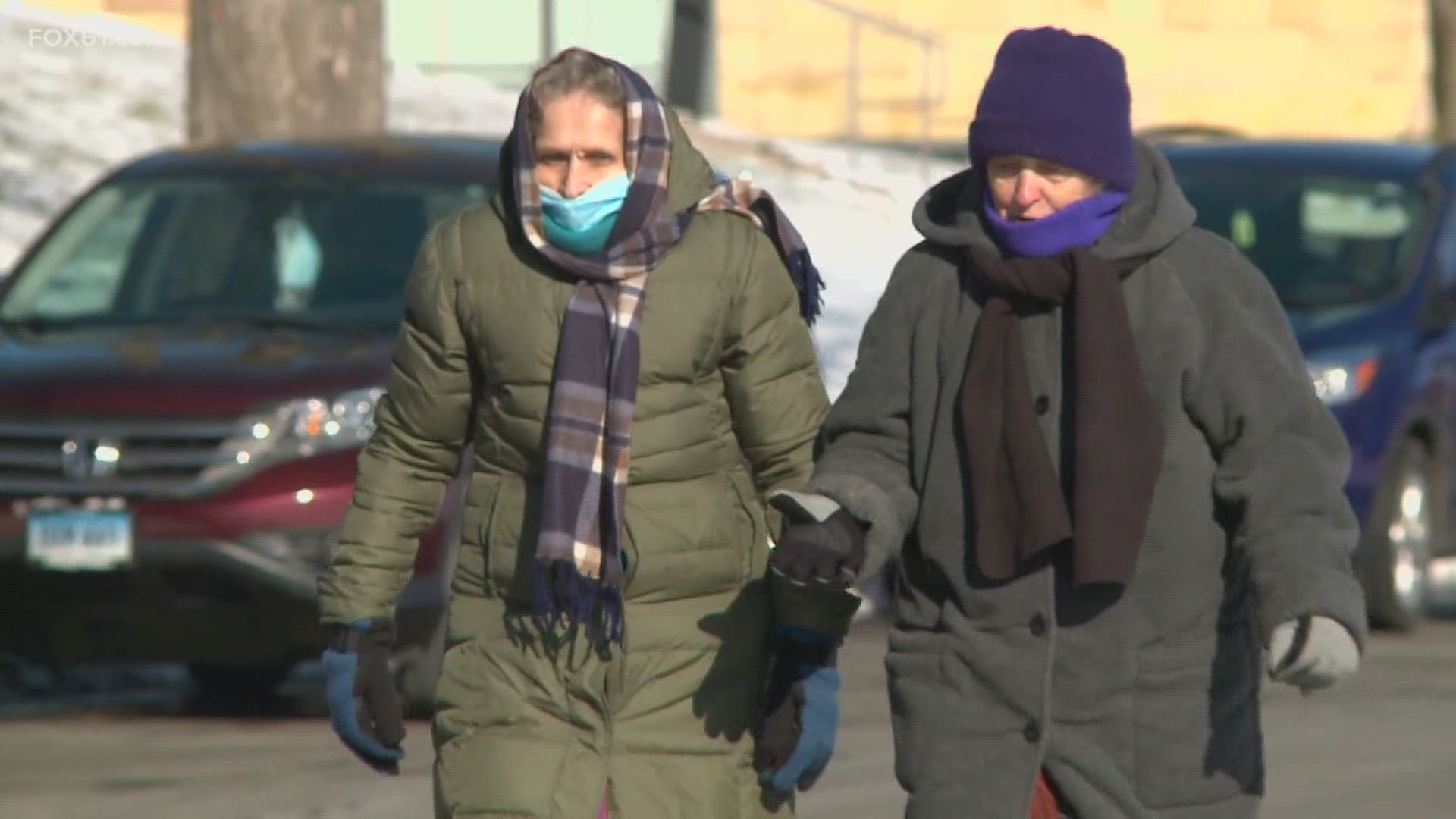HARTFORD, Conn — Governor Ned Lamont activated Connecticut’s Severe Cold Weather Protocol Thursday.
Connecticut has taken precautions as temperatures drop and a Rocky Hill auto repair store owner had recommendations for safe travel.
“Not letting your car warm up is not good for your engine,” said Shaun Griffin owner of Silas Deane Auto. “You should let your car warm up at least a couple minutes before you take off so you can get you some heat going through the vents, warm up your windshields, and get the ice off your windshields so you can see.”
Griffin said freezing temperatures and wind chill might impact your car. He also recommended paying attention to your car’s maintenance.
“When you come in and get your oil changed we do general inspection of your vehicle,” he said. “Check your fluids, tire pressure, tires, trek depths, your battery, and your charging system. All that is very important.”
The Connecticut’s Severe Cold Weather Protocol connects people in need with a warm place to stay.
Governor Lamont released a statement that said, “We need to spread the word to the most vulnerable in our communities that the conditions will become too dangerous to spend extended periods of time outdoors. Shelters are available throughout the state.”
AAA also recommends having an emergency kit with a flashlight, batteries, blanket, and extra masks.
Bob Macca, co-owner of Macca Plumbing and Heating, said he expects it to be a busy weekend for his team.
"It's really going to be the first cold snap of the year, so people are really starting to wonder about their pipes and wonder about their heating systems if they have a radiator that's not working well and they're calling us about that now," he said.
He said, pipes can freeze even if it hasn't been an issue in the past but there are some precautions you can take.
"It's a good idea to trickle pipes overnight. Just trickle the faucet let it run overnight. Also, we're asking them to use every fixture in the house before they go to bed and turn it on again in the morning, let it run for a minute or two," he said.
If your pipes do freeze, he said there are also a couple of things you can do.
"Take a simple hair dryer and hit that pipe with a hair dryer, blow it on there and that sometimes will do it. Also, open up the faucet that's not working and keep that open. That'll release the pressure and sometimes that will prevent the pipe from bursting," said Macca.
For your heat, he suggests turning it up a little bit higher than usual.
"Maybe if they have a room in the house that they don't use that much and they have a separate thermostat and a separate zone they should also make sure they turn up that heat," he said.
The Regional Water Authority in New Haven had these tips to help protect your pipes from potential damage by following these steps:
- Wrap exposed pipes with insulating material. Even newspaper can help in a pinch.
- Eliminate cold air sources near water lines by repairing broken windows, insulating walls, closing off crawl spaces and getting rid of drafts near doors.
- Open kitchen and bathroom cabinet doors to allow warmer air to circulate around the plumbing. Be sure to move any harmful cleaners and household chemicals up out of the reach of children.
- If your home does not have indoor shut-off valves for your outdoor spigots, winterize them by purchasing insulation kits, also referred to as domes or caps.
- When the weather is very cold outside, let the cold water drip from the faucet served by exposed pipes. Running water through the pipe – even a trickle – helps prevent pipes from freezing. A bucket or other container can be kept under the dripping faucet to collect water for later use, such as watering plants, ensuring it does not go to waste.
- Ensure water meter vault covers are not cracked. If the meter is installed outside the home, it is housed inside a covered vault. Check to be sure that the vault cover is secure and protecting the meter from freezing.
- The RWA advises anyone away from home during cold weather to have a friend, relative or neighbor regularly check their property to ensure the heat is working and the pipes have not frozen.
If water stops running in sinks or other faucets, it may be due to frozen pipes. Anyone concerned that their pipes have frozen should immediately stop water service using their home’s main water shut-off valve. Once homeowners turn their water off, they should contact a licensed plumber to thaw the frozen pipes, assess damage and make any necessary repairs. Never use hot water, a torch or any open flame to thaw a frozen pipe or water meter.
For more tips and information, visit www.rwater.com

